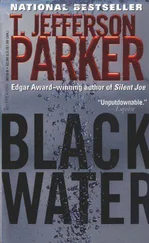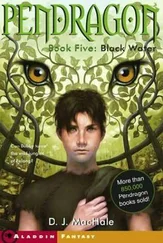Johnson rose from the bench. ‘Don’t fuck up,’ he said, then turned and walked down the path.
Later, when he was being debriefed back in Holland, they asked him about Jakarta. They asked him about the things he had witnessed, how he had had to abandon the moped, the chaos and danger of getting across town and the delay in the handover and leaving Java. Two of them came to visit him at the Rest Home in the country, the big house with light, airy rooms that had floor-to-ceiling windows and views across the fields. They sat holding clipboards and filled in sheets of paper as they asked him for a detailed account of everything that had happened, first on Java, then on Bali. They understood, they said, that he didn’t feel up to writing the report himself.
‘Why did it take you two days to get to the airport?’ one said.
He looked at them blankly, trying to keep the disdain from his face. ‘The purge had begun by then. Two days was a miracle. I was lucky to get there at all and even luckier to get on a plane.’
Then they asked him about what had happened in the rice fields on Bali and he told them what they needed to know.
‘And why did you disappear, then?’ one of them said softly. ‘You were off the radar for weeks, then came home via California. Why not the usual route? Why not contact us and let us get you out via Karachi?’
He had had to lie low in the highlands for two months, after what had happened at Komang’s house — and it was true, in all that time, he had made no effort to contact the Institute, not even to let them know he was still alive. ‘I had business in Los Angeles, personal business.’ They hadn’t pushed him on that one.
The men from the Institute were mostly interested in the facts, what he had done when. The doctors were interested in the pictures. The doctors asked him about the severed heads he had seen by the side of the road as he passed through Balinese villages. They asked him about the charred corpses hanging from trees with signs around their necks that decorated crossroads everywhere in Jakarta. On his way to the airport, he had seen one such corpse being beaten by a young man holding a collapsible chair. The doctors, so urbane: each of them had an air of practicality that, at times, bordered on scepticism, especially that bearded one, what was his name? In the middle of Harper’s businesslike description of a row of shops that had human hands on strings dangling from the front of the overhanging roof, the bearded doctor had looked at him and said, ‘Hands on strings ? How is that possible?’
Later, Harper was to pretend that was what it was, the body parts; that was what was troubling him, that was where they had come from, the images that made him wake in the night, snapping from sleep to full consciousness in a split second, as he did for two years after his return home: lying there, his eyes wide open in the dark.
He decided to take the backstreets to Pejompongan. The sun was high, the air close, a storm was brewing for later that day: the stink of sewage from the canals stirred up by the monsoon rain and the burning rubbish from the backs of shops and houses, the humidity, all created a miasma that slowed traffic, slowed movement. Jakarta’s daily thunderstorm was gathering. If it broke before he made it out to Parno’s, his chances of getting to the airport later were slim, even in an army jeep.
He had only been riding for fifteen minutes or so since he had left the cemetery, not exactly sure in which direction he was headed, following his nose down the twists and turns of side streets. At the end of a narrow road, he eased the moped to a halt and left the engine running while he lifted the edge of his shirt and wiped his face.
He dropped the shirt and looked up — and it was then that he saw them, four young men at the end of the road, no more than fifty metres away, facing him, staring at him, in positions of aggressive query. One of them, a tall one on the left, was holding a club; another was holding what looked like a table leg. Behind their tableau, at the end of the street, people were running past, a group of young women, a mixed group of men and women, two men — all his age and younger, and from somewhere in the streets out of sight came the unmistakeable sound of panic, the murmur of a crowd in danger, the occasional pop of gunfire, a shout or a scream. In the second or two it took to absorb all this, he was also making a calculation: in the time it would take him to kick the moped into action and turn in the narrow dirt road, which was covered in loose scree — the scree would make it impossible to do it too quickly without the risk of falling off — the young men, poised, tipped forward, could reach him.
And then it was happening. They were running at him — and he had no idea who they were or who they thought he was, only that they were a pack and if he hesitated for a second, they would be upon him.
He was still taking the decision to abandon the moped as he swung his leg over and ran back down the alley, still thinking maybe he should stay on it while his long legs sped to and fro with the satisfying speed endowed by adrenaline — and despite the sudden and apparent danger, there was a kind of joy in that run. He had spent two years in the Dutch army, he was a trained man with a long stride, these were just boys. He was nearly back at the other end of the narrow road, nearly out into the crowded main street, when one of the boys was on his heels and must have grabbed at the holdall on his back because he was flying backwards, turning as he did, landing on his side in the dirt and in the same moment, a blow — it was so sudden and ferocious he could not tell what or who from — landed on the side of his head and slammed the other side of it into the dirt. There was a moment of blackness, and when that had passed, he was curled in a ball on the ground, his arms crossed over his head to protect it, and they were beating him with the clubs and kicking him and shouting.
‘ Ampun-ampun! ’ he shouted, and for another moment or two, they did not hear him and continued — one landed an excruciating blow in the middle of his back that made him snap back, reversing the arc of his body in one swift movement.
Then they stopped and were shouting at each other, speaking with such speed he couldn’t understand what they were saying, and when he opened his eyes he saw that one of them, the tall one, had his arm across the chest of the one next to him, holding him back — they were having a ferocious argument of some sort. Harper rolled gingerly onto his knees but he knew that if he tried to rise, they would beat him to the ground. He tried to think of a whole sentence, brothers I am with you, I am your cousin , but his mouth wasn’t working. He lifted a hand and touched his chin, which was swollen and covered in dirt. He spat and there were strings of blood amidst the spittle.
Then they were gone. They had run off down the alley, back the way they had come. As he watched them go, he saw one of them stop by the moped and lift it from where it lay on its side, the engine still grumbling. It was the smallest youth — thirteen or fourteen years of age, perhaps. He sat on the moped and tried to kick it into life and was shouting at the others to come back and help. Harper hauled himself to his feet and loped off in the other direction, the holdall bumping against his back. He didn’t look back.
The main street was still busy with fleeing people but nobody stopped him as he walked against the tide, head down. When he glanced up, he was careful not to make eye contact with anyone. He glimpsed a huge pall of smoke rising from a few streets away. Any building with Communist associations was being set on fire, and sometimes just any building. There was the stink of burnt rubber from somewhere: then as he was looking at the smoke, a herd of young men similar to the ones who had attacked him ran down the street — they were slightly older than the others; students, he guessed, dressed in trousers with white shirts, waving objects in the air, sticks and batons, and shouting gleefully to each other, shoving each other. Driving behind them was an army jeep with six soldiers in the back, waving and smiling. It was a hunting party and their prey was PKI. Such a group became more than the sum of its parts. They wouldn’t care about any list.
Читать дальше












